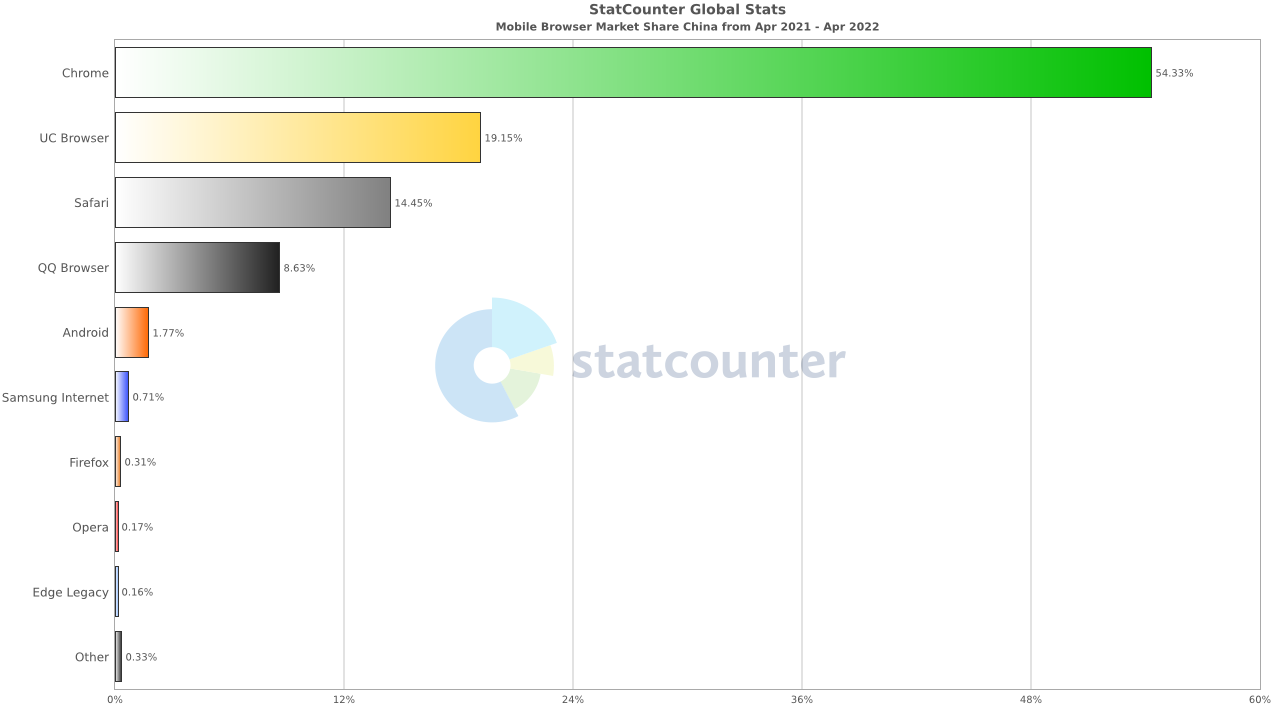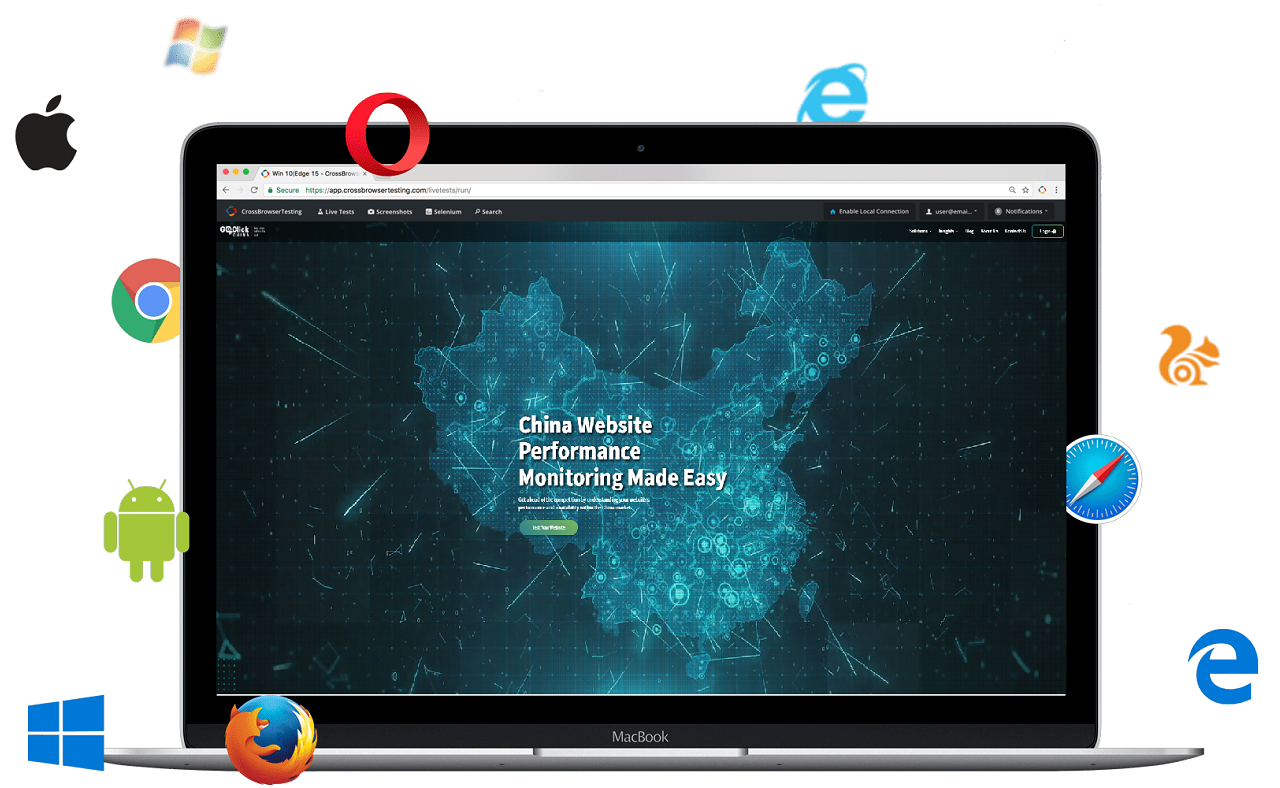Want to check how your website performs on the local browsers?
Send us your domain and get a testing report for FREE.
Chinese consumers access the internet through a wide range of browsers on their mobiles, many of which are uniquely made in China. Organizations must optimize their web pages and web apps for these browsers to leverage the booming digital economy.
China is a large and exciting market but succeeding in it requires understanding the Chinese people and their characteristics. Consumers here have unique tastes and preferences, and this shows in their online surfing habits. For instance, China has several homegrown mobile browsers that command a significant market share. Around 40% of mobile users in China use UC and QQ Browsers exclusively. Since mobile browsing accounts for 99% of internet users in China or about 847 million people, both websites and web apps must be optimized with native browsers in mind.
Optimizing for China in general and native Chinese browsers, in particular, is both a necessity and a competitive advantage. While consumers prefer faster websites, ignoring Chinese compliance measures or tastes can lead to organizations failing outright, as in the case of Amazon, eBay, and Uber. Optimizing for native browsers ensures a product is correctly indexed by search giants such as Baidu, loads fast, and has all its resources. Proactive organizations can leverage personalized web performance monitoring and testing companies like GoClick China to optimize their applications for Chinese browsers and gain significant competitive advantages.
Take a look at our other Case Study - the eLearning industry.
Chinese Mobile Browser Market Share Distribution
These real-time statistics show an accurate picture regarding the market share of mobile web browsers in China.
- Chrome occupies the top spot with 54.3% in the Chinese market.
- Chinese mobile browsers occupy the second and the fourth position, with a combined dominance of 27.78%.

Looking at the trends in the last twelve months as of April 2022, we see that UC Browser is rapidly gaining popularity while Chrome is slowly losing its market share. However, the competition in this market is fierce and fortunes change hands rapidly. As every percentage represents a huge installation base, tech giants and mobile phone brands alike are all involved in the race to appeal to as large a consumer base as possible. If you operate in a niche market, you may find it useful to research special-purpose browsers though they may not be one of the better-known names. For example, the Maxthon browser has native support for blockchain apps and is popular among cryptocurrency traders and decentralized technology proponents.
Simply put, as the mobile browser landscape evolves in China, a foreign business entering the Chinese market needs to take into consideration the implications of the native Chinese browsers and think about how to protect your business from potential vulnerabilities coming from these browsers. It is important to optimize not only for the common browsers you are familiar with but also for those unique Chinese browsers that cater to a large consumer basis. Another consideration is the compatibility, usability, and accessibility design issue of different browsers, making cross-browser testing another important part of your web strategy.
In the upcoming article in the series, we will take a look at a few popular native Chinese mobile browsers and how to optimize for them.
If you want to learn more about testing in China, check out our solutions.



